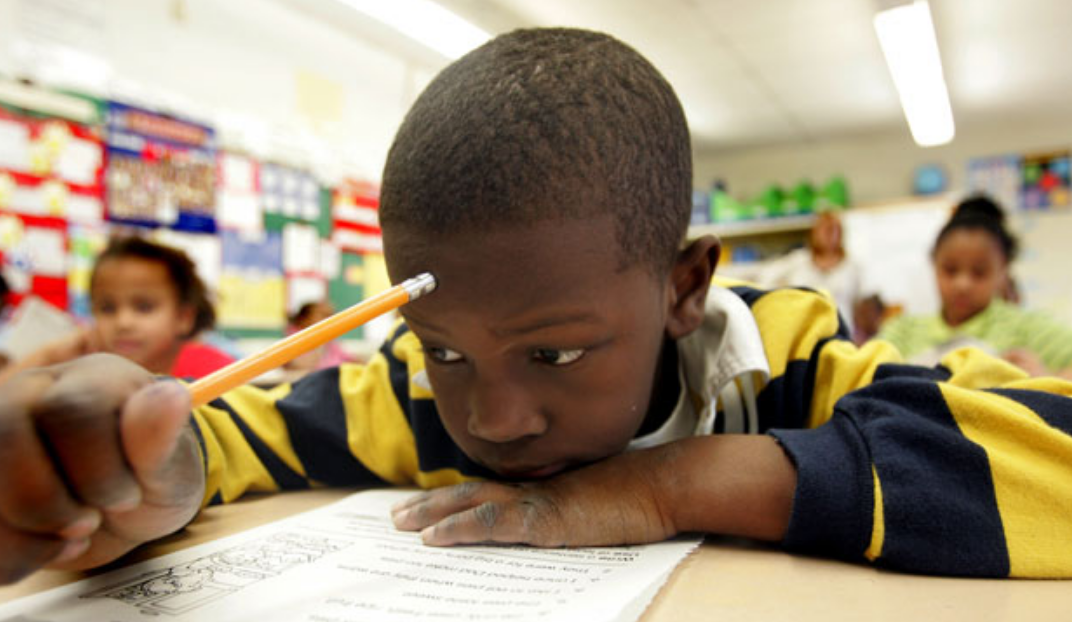The following is an interview conversation with Noah Jarvis conducted by Jamil Jivani.
July 21, 2022
Jivani:
Noah, you’re a student right now, growing up in the Peel area of Brampton and Mississauga, where I also grew up. I’m about 15 years older than you, so we grew up at different times, but the same parts of the country shaped our thinking. I’m wondering if you could elaborate on any experiences you had growing up that you think might have made you interested in politics? Things you might have seen as a kid, things you might have experienced?
Jarvis:
Growing up I was always interested in the bigger issues in society. I always was interested in talking about racial politics. I was always interested in talking about politics, even if I wasn’t aware that I was talking about politics. And I grew up in a household that really influenced me becoming a political conservative insofar as my parents, they push conservative values.
I’m half-Jamaican, half-Guyanese, and I feel that especially Jamaican people, but also Guyanese people, they have – the value system that Jamaicans have are deeply conservative. That worldview shaped the way I view everything else in life.
During the pandemic, I had a lot of free time and began to do research and became more interested in the American political system before the 2020 election campaign. And from there I decided to learn more about Canadian politics, and particularly Canadian issues, like the racial dynamic between the federal government and Indigenous people, and Indigenous people and the rest of Canadian society. And how that dynamic has progressed and is being manipulated over Canada’s history.
I’m also very interested in the relationship between black people and white people, not just in Canada, but also around the world insofar as there is sort of this idea that white people are these historical aggressors against blacks and the rest of the world. For example you hear a lot of talk of colonialism and the fact that Western European settlers, they came to Canada and wiped out the Indigenous populations and enslaved the African population for their own ends.
But this is something that has been happening historically for thousands of years. If you understand your history you would know that slavery has been around as long as humans have been around. You’d also understand that all of human history has been a tale of different tribes clashing and warring with each other.
Jivani:
It sounds to me what you’re describing is an argument similar to what you might hear from economist Thomas Sowell, that if you put our current racial dynamics into broader historical context, we actually don’t need to see today’s conflicts as being uniquely a reflection of white and black people being unable to get along. In fact, we have made a lot of progress in the bigger picture of people being able to get past historical injustices and seeing one another as human beings.
Jarvis:
Yeah, you’re exactly right. We’re in the 21st century, and different racial groups have more or less been getting along pretty well and have contributed to the Canadian project and American project in creating an identity that is separate from a racial identity.
With that being said there are people, especially people who push Critical Race Theory, they want to sort of bring back these identities of old, these racial identities. Yeah, they want to bring back these racial identities and divide Canadians and Americans on racial lines instead of bringing them together on a common set of ideals. And I think that’s very destructive to the social fabric.
Jivani:
Noah, I’m sure you’ve encountered different arguments against what you’re saying now in school, because a lot of the people in the university environment would hold a different view. And I’d like to put forward a counter argument and see what you think of it.
Some people would say that because history was so deeply shaped by racial categorization, that in order to address the harms caused by the past we need to utilize the same racial categorizations when it comes to policy-making, like affirmative action. Or, at the corporate level, some argue we need policies that require diversity, equity and inclusion training for people to better interact with one another and respect one another’s histories or respect one another’s heritage.
Do you believe that is true? Do we need to lean into race in order to address the legacy of racism?
Jarvis:
No. Not at all. I believe that when addressing individual human beings, we should be addressing them on their characteristics as a person, as a personality, what they have to offer in terms of their intelligence, their experience, and not just prejudging people based on their race. The argument that we have to embrace these racial categories based on historical prejudices doesn’t make any sense because these racial prejudices were a result of characterizing and dividing people based on their racial group. So, to solve the problem with the same mentality that created the problem is counterintuitive.
What is really needed is to address the problems that are keeping the black community lagging behind. It is a societal problem and it’s also a problem of government policy and not discriminatory policy but policy that institutions have put into place that they believe will advance racial equity. For example, universities discriminating based on race. Affirmative action is a policy that universities put into place where they would bring in more black people than they normally would, based on qualifications, so that their student population would be more diverse, and to give black people more opportunity.
But, as a result of affirmative action programs, black people have a higher dropout rate in universities. And also the universities are just taking away opportunities from other students that would otherwise be qualified. They’re doing that on the basis of their skin colour, and what is that other than racial discrimination?
And that’s the sort of racial division that is not needed. Especially since black people in Canada make up 3.5 percent of the population and in America they make up 13 percent of the population. What if there is backlash against the black population for these discriminatory measures? Racial progress in Canada and the United States is put at risk by racial discriminatory measures being put in place in our corporations and in government because these policies have real-world negative effects against people, and these negative effects are brought on because of racial stereotyping.
Jivani:
Noah, you only graduated high school a couple of years ago, so you’ve been in high school a lot more recently than I have been. But what is true today and also in my day is that students with our background, who come from black communities in the Toronto area, do have worse education outcomes than students from other communities. We, as black males, are one of the groups most likely to drop out of school or to struggle with reading and writing at grade level.
When a black mom or dad says, “this is not right, why are my kids having to deal with these problems more than other communities?” I can understand that frustration. I can also understand why a black parent would say, “we need some sort of plan to deal with this. For generation after generation you should not have black students struggling in these schools?”
What is the solution to that problem? If affirmative action isn’t something you think is helpful, what would you say to a mom or a dad who is concerned about these sorts of statistics that show that not every community is being served equally by the status quo?
Jarvis:
As individuals, we need to take responsibility for our own lives. For the black community as a whole, I would say stop looking to the government, stop looking to corporations and societal institutions to bend over backwards to cater to you, and instead make something of ourselves.
It is a sort of cultural reckoning that the black community has to have. And we need to realize that our destiny is in our own hands. We need to look inward if we want to succeed. If we want to have better educational results, we should put a focus on prioritizing our education. We should encourage black students, as we do, but we should continue and further our encouragement of black students to stay in school and to prioritize our education.
Black people have an outsized representation in colleges and universities in Canada compared to the rest of the population. And we have an outsized representation in the amount of people with bachelor level degrees than the rest of the population. Black people can succeed in the university system. But it’s sad that a lot of black people feel as if they just can’t do that. It’s sort of self-loathing. From Statistics Canada data I’ve read, more black people have expressed the desire to get a postsecondary education, but only 60 percent believe that they can achieve that.
I believe that music is a good reflection of values, but if you look at hip-hop there’s a lot of promotion of violence, there’s a lot of promotion of drugs, and a lot of rappers they sort of promote this image as being desirable as something that other people should look up to these people and should aspire to be like them. And a lot of black children who may not have a role model in their lives instead look towards these negative role models in the black community instead of looking towards people like Lincoln Alexander. Barack Obama’s a good example of someone who worked hard to get to where he eventually was. You know, he graduated Harvard law, and he wrote books. He’s a very educated man.
But the problem I have with Obama is that he turns around after putting in all that hard work and dedication into making something of his own life, and telling black Americans that well you can’t do something because society is oppressing you, is holding you back from being able to achieve what you can. If a black man is able to become the president of the United States, if you know, we have numerous black millionaires, we have some of the richest black people on Earth in North America. We cannot then turn around and tell the children, the adults of the future, that they cannot do something. We cannot tell children they are being held back by a society that has made overtures to the black community by establishing a stronger welfare state in racial preferences in hiring, and racial preferences in university admissions.
Jivani:
So let’s take a minute to contrast the perspective you just laid out with a phenomenon that has become increasingly popular these days, what is known as Critical Race Theory (CRT).
Now for those who might be unaware of the term CRT began as a concept in American legal academia. It’s generally attributed to Columbia University law professor Kimberle Crenshaw. It began as a lens through which students and lawyers and policy makers would identify racial implications in any law or policy that was created. The basic assumption behind CRT is that you can read race into anything, even something that might appear as neutral.
A critical race theorist would say that your analysis of racial inequalities is leaving out a systems analysis. CRT proponents would say that history has given disadvantages to black people and advantages to white people because institutions operate with racial biases.
First, what do you think of CRT? And second, do you think critical race theorists make any compelling arguments in their disagreements with you?
Jarvis:
It’s ludicrous to say that racism is an ordinary, everyday thing that we find in society and is not aberrational.
Yes, we have to acknowledge the historical injustices done by white people against black people. In America they had a system of slavery that lasted until the end of the American Civil War, which oppressed millions and millions of black people into unthinkable amounts of suffering and human casualties. We also have to recognize that government institutions actively worked against black people, such as Jim Crow laws. There is a reason for black people to be upset – there’s a reason for people to be upset with the racial injustices of the past.
With that being said, what are we going to do then? We can acknowledge what has happened in the past. That’s great. But what about now? What are we going to do with that information?
I don’t believe that we should be lamenting, taking self-pity, and having the white people of 2022 come out feeling guilty and saying sorry to the black people of 2022 for things that they have not done themselves. That’s not productive.
The pathway that we should be going towards is having a society where your race does not matter when it comes to your qualifications for a job. Your race does not matter when it comes to treating others with respect, dignity, and that is universal values that were pushed by Booker T. Washington, Martin Luther King, and Frederick Douglass.
Frederick Douglass was a former slave who had deep belief and deep confidence in the Constitution of the United States. And he had every right to be angry at America. He had every right to feel as if the Constitution had failed him and all black people. But he put faith in the ideals that the founders of the US enshrined into their constitution. These values, like the values that Canada adopted, are not based on an understanding of race. These values are universal.
It is important to understand that black people have been historically oppressed, but at the same time the answer is not to oppress white people by imposing racial hiring quotas. Instead it should be recognizing the values, recognizing the ethics that lead to socioeconomic and cultural satisfaction, and pursuing those with every fiber of our being.
Lamenting about how terrible our society is doesn’t get us anywhere. It only contributes to your own personal level of stress and anxiety. That way of thinking doesn’t push you to get a job. It doesn’t push you to put your best foot forward in school. These are things that encourage just being mad at the world. And it’s not productive to just be mad at the world without taking substantial action into improving it.
Improving the world does not look like categorizing everyone we meet by the tone of their skin. I believe real social progress is cooperation between the races toward a higher ideal. We should define these ideals by what has made Canada great. And what has made Canada great is the idea that everyone’s equal under the law.



